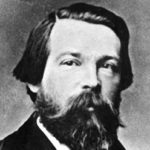David Kolb biografie en quotes

David Kolb (1939) is een bekende Amerikaanse professor en onderwijskundige die gespecialiseerd is in experimentele leervormen, individuele en sociale veranderingen, carrière ontwikkeling en onderwijs voor management en professionals. Tevens is David Kolb oprichter en voorzitter van de organisatie ‘Experience Based Learning Systems (EBLS)’.
Als nevenactiviteit is David Kolb professor op het vakgebied van organisatiegedrag aan de Universiteit van Case Western Reserve in Ohio (Verenigde Staten). David Kolb is vooral bekend van zijn vier leerstijlen.
David Kolb biografie
In 1964 behaalde David Kolb zijn Bachelor graad (BA.) cum laude aan het KNOX college in de Verenigde Staten. David Kolb behaalde in 1964 zijn Mastergraad (MA.) en in 1967 zijn doctoraat (Ph.D.) aan de Harvard Universiteit binnen het vakgebied sociale psychologie.
Na zijn studie ging hij aan de slag als docent en onderzoeker aan de Weatherhead, School of Management. Samen met Ron Fry ontwikkelde David Kolb het Experiential Learning Model (ELM) of te wel de vier leerstijlen.
Dit model kent vier concrete onderdelen, te weten:
- Concrete ervaring
- Observatie en reflectie van de concrete ervaring
- Opzetten van abstracte concepten op basis van de opgedane reflectie
- Het testen van nieuwe concepten
Deze vier onderdelen vormen de essentie voor de cirkel van het leren. Men kan starten bij elk onderdeel, maar meestal begint men met concrete ervaring. Belangrijke inspirators voor het Experiential Learning Model waren onder andere John Dewey, Jean Piaget en Kurt Lewin.
Het Experiential Learning Model wordt vooral gebruikt binnen de ontwikkeling van onderwijsprogramma’s voor management en professionals. David Kolb is samen met zijn vrouw Alice Kolb nog steeds actief als ondernemer met hun bedrijf ELBS.
Bekende quotes
- “Learning is the process whereby knowledge is created through the transformation of experience. Knowledge results from the combination of grasping experience and transforming it.”
- “Experiential learning posits that learning is the major determinant of human development and how individuals learn shapes the course of their personal development.”
- “There are two goals in the experiential learning process. One is to learn the specifics of a particular subject, and the other is to learn about one’s own learning process.”
- “The concept of learning style describes individual differences in learning based on the learner’s preference for employing different phases of the learning cycle. Because of our hereditary equipment, our particular life experiences, and the demands of our present environment, we develop a preferred way of choosing among the four learning modes.”
- “The concept of learning space elaborates further the holistic, dynamic nature of learning style and its formation through transactions between the person and environment.”
- “The traditional lecture course … emphasizes first level learning emphasizing the learning modes of reflection and abstraction but involving little action (often multiple choice tests that assess registration of concepts in memory) and little relation to personal experience. Adding more extensive learning assessments that involve practical application of concepts covered can create second level learning involving the three learning modes where reflection supplemented by action serve to further deepen conceptual understanding.”
- “To learn from their experience, teams must create a conversational space where members can reflect on and talk about their experience together.”
Bekende publicaties en boeken van David Kolb et al.
- 2013. Kolb Learning Style Inventory: LSI Workbook. HayGroup.
- 2012. Experiential learning theory. In Encyclopaedia of the Sciences of Learning (pp. 1215-1219). Springer US.
- 2011. Kolb Learning Style Inventory 4.0. Boston MA: Hay Group.
- 2010. Learning to play, playing to learn : A case study of a ludic learning space. Journal of Organizational Change Management.
- 2009. Experiential learning theory: A dynamic, holistic approach to management learning, education and development (pp. 50). London: Sage Publications Handbook of Management Learning, Education and Development.
- 2009. The Learning Way Meta-cognitive Aspects of Experiential Learning. Simulation & Gaming, 40(3), 297-327.
- 2009. Are there cultural differences in learning style? International Journal of Intercultural Relations, 33(1), 69-85.
- 2006. Organizational Behavior: An Experiential Approach. Pearson Education (Us)
- 2005. Experiential learning in teams. Simulation & Gaming, 36(3), 330-354.
- 2005. Learning styles and learning spaces: Enhancing experiential learning in higher education. Academy of management learning & education, 4(2), 193-212.
- 2005. Conversation as experiential learning. Management learning, 36(4), 411-427.
- 2002. Conversational learning: An experiential approach to knowledge creation. Greenwood Publishing Group.
- 2001. Experiential learning Theory: Previous Research and New Directions. In Perspectives on cognitive, learning, and thinking styles. Sternberg & Zhang (Eds.). NJ: Lawrence Erlbaum.
- 1999. Learning style inventory. McBer and Company.
- 1995. From learning styles to learning skills: the executive skills profile. Journal of Managerial Psychology, 10(5), 3-17.
- 1991. Assessing individuality in learning: The learning skills profile. Educational Psychology, 11(3-4), 279-295.
- 1986. Facilitating experiential learning: Observations and reflections. New directions for adult and continuing education, 1986(30), 99-107.
- 1985. Learning-style inventory: Self-scoring inventory and interpretation booklet. TRG Hay/McBer.
- 1984. Career development, personal growth and experiential learning. D Kolb, IM Rubin and JM McIntyre Organosational psychology: Readings on human behaviour in organisations, New jersey Prentice Hall.
- 1983. Experiential learning: Experience as the source of learning and development. New Jersey: Prentice-Hall.
- 1983. Problem management: Learning from experience. The executive mind. San Francisco: Jossey-Bass.
- 1981. Learning styles and disciplinary differences. in A. W. Chickering (ed.). The Modern American College, San Francisco: Jossey-Bass.
- 1981. Experiential learning theory and the learning style inventory: A reply to Freedman and Stumpf. Academy of Management Review, 6(2), 289-296.
- 1976. The Learning Style Inventory: Technical Manual. Boston, Ma.: McBer.
- 1974. Toward an applied theory of experiential learning. MIT Alfred P. Sloan School of Management.
- 1974. On management and the learning process. Prentice-Hall.
- 1971. Organizational psychology.
- 1971. Individual learning styles and the learning process. MIT.
- 1970. Organization Development Approach to Consulting. Sloan management review, 12(1), 51-65.
- 1970. Goal-setting and self-directed behavior change. Human Relations, 23(5), 439-457.
- 1968. Self-directed change: Two studies. The Journal of Applied Behavioral Science, 4(4), 453-471.
Citatie voor dit artikel:
Van Vliet, V. (2014). David Kolb. Retrieved [insert date] from Toolshero: https://www.toolshero.nl/bekende-auteurs/david-kolb/
Oorspronkelijke publicatiedatum: 16/09/2014 | Laatste update: 25/05/2023
Wilt u linken naar dit artikel, dat kan!
<a href=”https://www.toolshero.nl/bekende-auteurs/david-kolb/”> Toolshero: David Kolb</a>












